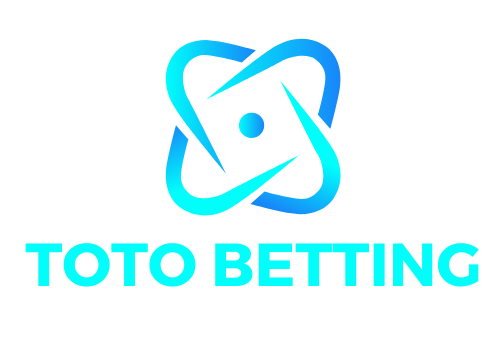The Impact of TOTO on National Economies: A Closer Look at the Numbers
In the realm of gambling and betting, TOTO stands as a prominent player, offering a variety of games that entice participants with the allure of striking it rich. However, beyond the thrill of the game lies a deeper impact on national economies that warrants closer examination. In this article, we delve into the intricate web of TOTO’s influence, dissecting its economic implications through a thorough analysis of the numbers.
Understanding TOTO:
Before delving into its economic impact, it’s essential to grasp what TOTO entails. Originating from Singapore, TOTO is a form of lottery where players select a set of numbers in the hope of matching them with the drawn numbers. Its simplicity and potential for significant payouts make it a popular choice among gambling enthusiasts worldwide.
Revenue Generation:
One of the most apparent impacts of TOTO on national economies is its contribution to revenue generation. The substantial amounts spent on TOTO tickets translate into revenue for governments, which can be allocated to various sectors such as healthcare, education, and infrastructure. For instance, in Singapore, TOTO sales contribute to the Singapore Totalisator Board (Tote Board), which channels funds to various charitable causes and nation-building projects. The revenue generated from TOTO can be substantial, particularly in countries with large populations and avid gambling cultures. For example, in countries like China and the United States, where lottery sales, including TOTO-like games, reach billions of dollars annually, the economic significance of TOTO revenue cannot be overstated.
Employment Opportunities:

The operation of TOTO necessitates a workforce to manage ticket sales, draw processes, and other administrative tasks. As a result, it creates employment opportunities, directly benefiting individuals and contributing to overall economic activity. These employment opportunities span a range of sectors, from retail and hospitality to finance and technology. In addition to direct employment within lottery organizations, TOTO’s economic impact extends to ancillary industries, such as marketing, advertising, and logistics, which support the distribution and promotion of TOTO products. Furthermore, the economic benefits of TOTO employment are not limited to urban areas but extend to rural communities where lottery retailers and distribution centers are often located, providing jobs and stimulating local economies.
Consumer Spending Patterns:
Analyzing consumer spending patterns reveals valuable insights into the economic impact of TOTO. The discretionary spending allocated to TOTO tickets reflects consumer confidence and disposable income levels, providing indicators of broader economic health. In periods of economic prosperity, TOTO sales may increase as consumers feel more confident in their financial outlook and are willing to allocate a portion of their income to leisure activities such as gambling. Conversely, during economic downturns, TOTO sales may experience fluctuations as consumers tighten their discretionary spending and prioritize essential expenses. Monitoring TOTO sales trends can therefore serve as an economic barometer, offering policymakers insights into consumer sentiment and spending behavior.
Tourism and Hospitality:
TOTO’s popularity can also extend to tourism and hospitality sectors. Destination cities offering TOTO games may experience increased tourism as individuals travel to participate in draws, thereby boosting local economies through spending on accommodation, dining, and entertainment. This phenomenon is particularly evident in countries where TOTO draws are associated with special events or jackpots of significant magnitude. For example, the allure of a multimillion-dollar TOTO jackpot may attract tourists from neighboring countries, leading to a surge in hotel bookings, restaurant reservations, and other tourist expenditures. Furthermore, TOTO retailers and outlets may capitalize on this influx of visitors by offering promotions and discounts, further stimulating economic activity in tourist areas.
Social Welfare Programs:
Governments often allocate a portion of TOTO revenue to fund social welfare programs aimed at supporting vulnerable populations. From healthcare initiatives to poverty alleviation efforts, TOTO plays a role in financing crucial social services. For example, in countries like the United Kingdom and Australia, proceeds from national lotteries, including TOTO-like games, are directed towards various social causes, including education, healthcare, sports development, and arts and culture. These funds supplement government budgets and provide essential support to marginalized communities, enhancing social cohesion and inclusivity. Moreover, the transparent and accountable nature of lottery funding ensures that resources are allocated efficiently and equitably, addressing pressing social needs and improving overall quality of life.
Investment in Infrastructure:
The influx of revenue from TOTO can facilitate investment in infrastructure projects, fostering economic development and enhancing the quality of life for citizens. From transportation networks to public utilities, these investments have far-reaching benefits for national economies. For example, in Singapore, revenue from TOTO and other lottery games has been instrumental in funding key infrastructure projects such as the construction of public housing, healthcare facilities, and transportation infrastructure. By leveraging TOTO revenue to finance infrastructure development, governments can address critical infrastructure gaps, stimulate economic growth, and improve the overall competitiveness of their countries. Moreover, infrastructure investments create jobs, boost productivity, and attract private sector investment, further amplifying their economic impact.
Economic Multiplier Effect:
TOTO’s economic impact extends beyond its direct contributions, manifesting through the multiplier effect. As revenue circulates through the economy, it generates secondary and tertiary effects, amplifying its initial impact and stimulating overall economic growth. For example, when an individual purchases a TOTO ticket, the revenue generated not only benefits the lottery organization but also flows to retailers, suppliers, and service providers involved in the TOTO ecosystem. These entities, in turn, may spend their earnings on goods and services, creating additional income streams for other businesses and individuals. This ripple effect permeates through various sectors of the economy, creating a virtuous cycle of economic activity and prosperity. Additionally, the multiplier effect of TOTO extends to tax revenues, as increased economic activity generates higher tax revenues for governments, which can be reinvested into public services and infrastructure, further fueling economic growth.
Regulatory Considerations:
Effective regulation of TOTO is essential to maximize its positive economic impact while mitigating potential drawbacks such as problem gambling and illicit activities. Regulatory frameworks must strike a balance between promoting responsible gaming and harnessing TOTO’s economic benefits. Key regulatory considerations include age restrictions, advertising standards, responsible gaming measures, and enforcement mechanisms to combat illegal gambling activities. By implementing robust regulatory frameworks, governments can ensure the integrity and sustainability of TOTO operations while safeguarding the welfare of consumers and society at large. Moreover, regulatory oversight enhances transparency and trust in TOTO operations, fostering a conducive environment for economic growth and social development.
Global Perspectives:
Examining TOTO’s impact on national economies offers insights into broader global dynamics. Variations in regulatory approaches, cultural attitudes towards gambling, and socioeconomic factors shape the extent to which TOTO influences different countries’ economies. For example, in some countries, TOTO may be tightly regulated and operated by state-owned entities, while in others, it may be decentralized with multiple private operators. Similarly, cultural norms and religious beliefs may influence public attitudes towards gambling, affecting the prevalence and acceptance of TOTO within society. Furthermore, socioeconomic factors such as income levels, education, and access to financial services can impact individuals’ participation in TOTO and the distribution of its economic benefits. By examining these global perspectives, policymakers can gain valuable insights into the opportunities and challenges associated with TOTO and make informed decisions to maximize its positive impact on national economies.







